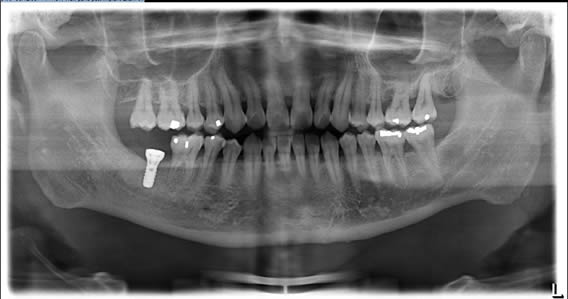
Home
Lotus Orthodontics and Periodontics
Frank Tsung-Ju Hsieh, DDS, MSD
American board certified orthodontist and American board certified periodontist
Specializing in Orthodontics, Periodontics, and Dental implantsOrthodontics and periodontics for kids and adults

|
When patients lose a tooth or teeth due to trauma or periodontal disease, dental implants are an ideal option for patients with good general oral health. Implants look and feel like your own teeth and can last a lifetime if given the proper placement and maintenance. Why are Implants Better than Dentures and Bridges?There are other routes a patient can take to replace missing teeth, including dentures and bridges; however, dental implants are a much better solution for many reasons.
Placement of Dental ImplantsDental implants aid in replacing a single tooth, several teeth or even all of your teeth. The implant itself looks like a screw or cylinder and is placed into the jaw. Over the period of 2-6 months, the implant and jawbone bond together to provide an anchor for the crown. An abutment is used as an extension to complete the foundation for the new tooth to be attached. 
Sometimes several teeth need to be replaced, and implant-supported bridges are a prime option as opposed to fixed bridges or removable partial dentures. The bone is better preserved with implant-supported bridges as it replaces some of your tooth roots that had deteriorated. Replacing all of your teeth is also possible with implant-supported full bridges or implant-supported dentures. Patients are able to preserve their natural bite with implants and achieve more comfort and stability than with conventional dentures. Post Implant CareAlthough proper oral hygiene is always recommended for maintaining good dental health, it is especially important when a patient has received a dental implant. Bacteria can attack sensitive areas in the mouth when teeth and gums are not properly cleaned, thus causing gums to swell and jaw bones to gradually recede. Recession of the jawbone will weaken implants and eventually make it necessary for the implant to be removed. Patients are advised to visit their dentists at least twice a year to ensure the health of their teeth and implants. Dental implants can last for decades when given proper care. |
FAX: (888) 599-4915; Text: 503-664-3005; email: 
51701 Columbia River Highway, Scappoose, OR 97056 TEL: 888-599-4915
1298 NE Orenco Station Parkway, Hillsboro, OR 97124 TEL: 888-599-4915
